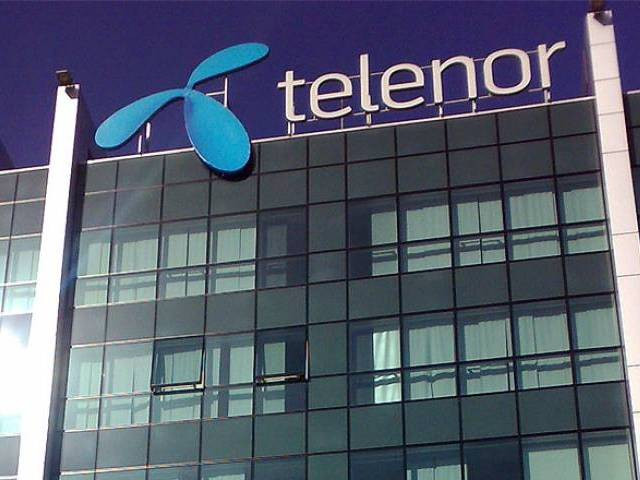Telcos warn of monopoly risk in Telenor acquisition
Raise concerns over spectrum allocation, market dominance at fourth hearing on merger

Key stakeholders in Pakistan’s telecom industry, including leading operator Zong, have raised serious concerns over the proposed acquisition of Telenor Pakistan and Orion Towers by Pakistan Telecommunications Limited (PTCL), warning that the merger could create a monopoly on spectrum allocation. The post-merger company is expected to control 34.4% of the total allocated spectrum in the retail mobile telecommunications market.
The Competition Commission of Pakistan (CCP) held its fourth hearing in the Phase II Merger Review of PTCL’s bid to acquire 100% shareholding in Telenor Pakistan (Private) Limited and Orion Towers (Private) Limited. The review is being overseen by a Bench comprising Chairman Dr Kabir Ahmed Sidhu, and members Salman Amin and Abdul Rashid Sheikh. During the hearing, Zong raised concerns about spectrum allocation, stressing that spectrum, as a limited resource, plays a critical role in determining market power for Mobile Network Operators (MNOs). Each frequency band offers different levels of efficiency and coverage.
Representing the telecom industry including Zong, CM Pak’s Asad Ladha emphasised the importance of analysing the spectrum allocation to assess the market impact of the merger. He also suggested that the CCP consider imposing ancillary restrictions to ensure fair competition.
In response, PTCL’s representative, Rahat Kaunain, stated that they did not foresee immediate competition concerns from the transaction but were willing to provide more detailed responses if the CCP deemed it necessary. Ladha proposed ancillary restrictions that could include a non-compete clause, which would require PTCL to seek an exemption from the CCP. These restrictions aim to curb anti-competitive behaviour by limiting business operations after the merger.
CM Pak’s analysis of the spectrum data showed that after the merger, the new company (MergerCo) would hold 23.46% of the spectrum in the 900 MHz band, placing it in a dominant market position, particularly in Azad Jammu and Kashmir (AJK) and Gilgit-Baltistan (G-B).
The Director General of Licensing at the Pakistan Telecommunication Authority (PTA), Amer Shahzad, confirmed that no additional spectrum in the 900 MHz band is currently available, as it has already been allocated to various Cellular Mobile Operators (CMOs). However, he noted that new spectrum could become available by 2025. He also acknowledged Ladha’s observation that the combined spectrum share of Telenor and Ufone would be 39.60%, compared to Zong’s 19.80%.
Spectrum scarcity and
market power
Spectrum scarcity is a major issue, as it directly impacts an MNO’s ability to compete. Larger spectrum shares often provide competitive advantages in terms of coverage and service quality, making spectrum allocation a key factor in assessing market competition.
Each frequency band offers unique benefits for coverage and signal efficiency. Post transaction, MergerCo would control 34.4% of the total spectrum allocated for the retail mobile telecommunications market, raising concerns about increased market concentration and potential dominance.
PTCL’s Robert Middlehurst stressed that Pakistan’s spectrum allocation follows regulatory processes, but globally, equal spectrum distribution is not guaranteed. Allocation depends on factors such as investment policies, service quality, and coverage priorities. Barrister Ambreen Abbasi, senior legal advisor to the CCP, inquired whether there are any existing PTA policies regarding the divestiture of spectrum assets. PTA’s Shahzad referred to the ‘Spectrum Sharing Policy,’ which outlines the conditions under which operators can share spectrum, aiming to optimise utilisation and address capacity concerns.
The hearing was adjourned until October 24, 2024.
In a statement issued by the CCP, the ongoing review focuses on the potential concentration of market power, competitive dynamics, and the broader impact on the telecommunications sector.
After the Phase I review earlier this year, the CCP concluded that PTCL’s acquisition of Telenor Pakistan and Orion Towers could substantially lessen competition in the telecommunications industry and further strengthen PTCL’s dominant position. The CCP had identified PTCL as a significant market power (SMP) operator in wholesale domestic leased lines, wholesale IP bandwidth, and the retail LDI fixed-line telecommunications market, as recognised by PTA.



















COMMENTS
Comments are moderated and generally will be posted if they are on-topic and not abusive.
For more information, please see our Comments FAQ